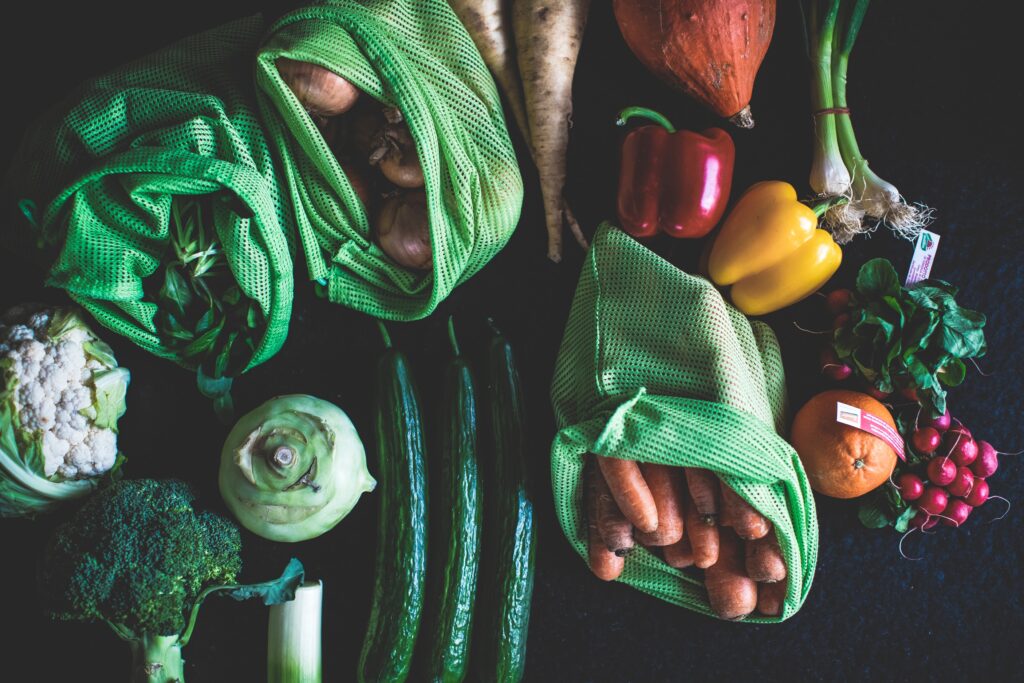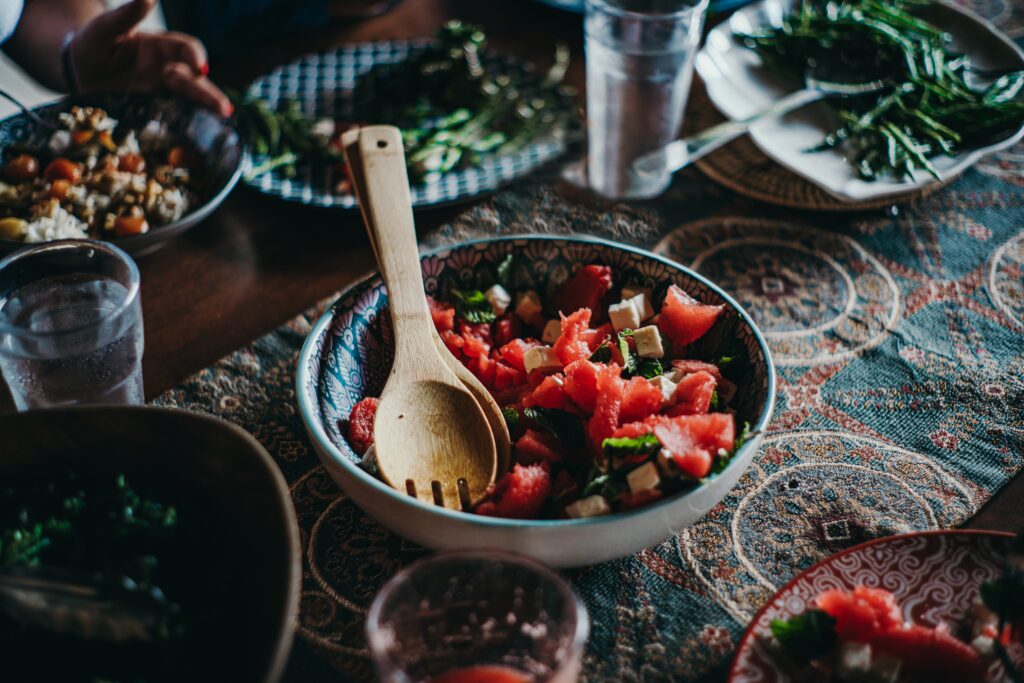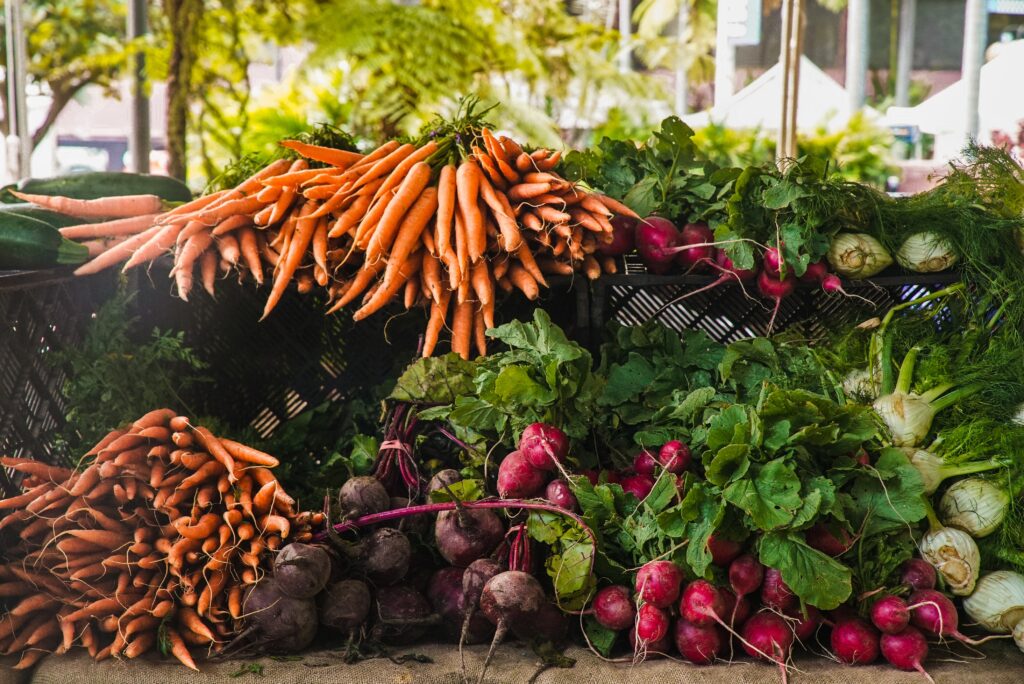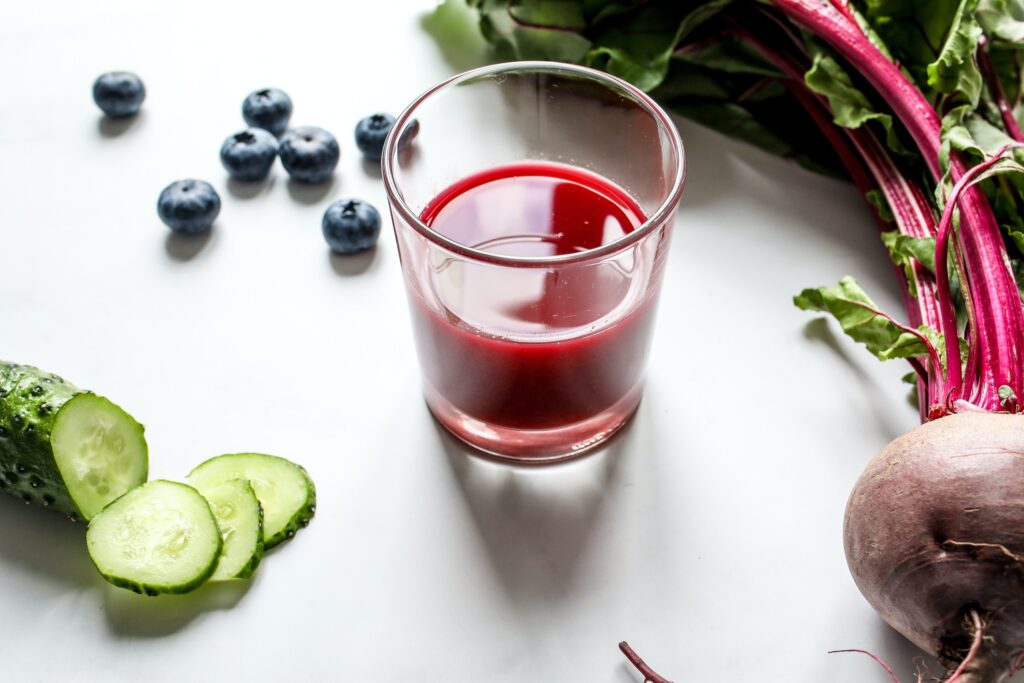Continuing on with our theme of the month Fatigue – and how to fight it, we come to how and what to eat to prevent fatigue…
We all know what we eat is how we feel, so what do we eat to feel energized and vital?
Well it’s not just what we eat, but also how we eat, and how we construct our meals. Because it’s not just about the nutrients, but also about how fast or slow our body breaks down and absorbs the sugar from our food, and how we can regulate this process to reduce highs and lows in blood sugar, and create sustained energy and vitality throughout our day.
A bit about blood sugar regulation:
To put it simply, many of the foods we eat, especially carbohydrates, are broken down by our digestive system into glucose, which is then absorbed into the bloodstream, and distributed to the cells for energy and to the liver for storage.
Our body naturally tries to keep the perfect amount of sugar in the bloodstream, with the team-work of 2 hormones; insulin and glucagon. Insulin helps the cells absorb glucose, reducing the amount of glucose in the bloodstream, and glucagon instructs the liver to release stores of glucose to increase blood sugar when it becomes too low.
Together they maintain a balance. However when we continually consume large amounts of caffeine and refined carbohydrates, we spike our blood sugar levels, making it harder for our body to maintain balance, and creating insulin resistance (where insulin resists letting the glucose into the cells) over time, increasing blood sugar levels even more.
If this pattern is continued and left unattended this can not only lead to fatigue but also; excess abdominal fat, type 2 diabetes, high cholesterol and blood pressure and cardiovascular disease.
How to construct your plate for healthy blood sugar levels:
The most simple way to support healthy blood sugar levels is to slow the absorption of glucose from the digestive system!
The easiest way to do this is
- Reduce/avoid refined carbohydrates like white bread, pastries, sugar, candy and soft drinks etc.
- Construct your plate to include a little of each of the macronutrients, when these are all eaten together they slow the breakdown of the foods to glucose, and therefore slow absorption of glucose into the bloodstream, creating a nice steady release of glucose/energy throughout the day.
The macronutrient formula is as simple as:
Complex carbohydrates + Protein + Healthy Fats + Fiber = Healthy blood sugar balancing meals!
Refer to the list below for food examples of each:
- Complex carbohydrates,
Complex carbs such as whole grain bread are higher in fiber, and therefore slower to break down, as opposed to refined carbohydrates like white bread, pastries or short grain white rice, etc….
Complex carbohydrates: whole grain or pulse pasta, whole grain bread, buckwheat, quinoa, millet, steel cut and regular oats, barley, brown rice, farro, lentils and legumes, sweet potato, potato and pumpkin.
- Protein,
Slows blood sugar absorption, and can help people feel fuller for longer. Protein is also needed for our neurotransmitters which help us feel focused, motivated, happy and sleep!
Protein sources: Meat, fish, lentils, beans, tempeh, tofu,
- Healthy Fats,
Healthy Fats also slow the absorption of sugar from your food, supporting blood sugar regulation. Additionally healthy fats are essential to our diet, as each cell membrane is made up of lipids (fat), therefore healthy fats or essential fatty acids are important to almost all functions and maintenance of our body including skin, memory, joints, energy and even sleep!
Healthy fats: Fish, flaxseeds, avocado, walnuts, chia seeds, sesame seeds, olive oil, flaxseed oil, nuts and seeds generally.
- Fiber,
Fiber is great for blood sugar regulation, slowing sugar absorption, as well as helping keep you fuller for longer! Fiber is also great for cardiovascular health, cholesterol management, digestion, gut health, and feeding our microbiome – which can also be implicated in blood sugar regulation.
Fiber sources: Think skin on whole foods, whole (skin on, not canned) fruits and vegetables, legumes, quinoa, regular or steel cut oats, nuts and seeds, as well as add-ons like LSA, psyllium husk, chia seeds, flaxseeds or meal etc…
Extra blood sugar Balancing tips:
So you’ve got down pat how to build your plate for healthy blood sugar regulation?
Here are some extra tips and tricks!
- Routine meal times throughout the day creates consistent energy, try not to skip meals, for this reason.
- Opt for snacks with the same blood sugar balancing formula.
- Always have coffee on a full stomach.
- Prepare your foods before you’re hungry, and keep healthy snacks around. This helps you to opt for healthy blood sugar balancing foods always, rather than leaving yourself vulnerable when you get hungry and tired.
- Include bitter foods and drinks with your meals. Bitters support digestion, but also have a blood sugar regulating effect and help with appetite control. Bitter foods include: bitter gourd, rocket, kohlrabi, brassicas, grapefruit, citrus skins etc….
- Add cinnamon to everything, not just because it’s delicious, but 0.5-2 teaspoons of cinnamon per day has been shown to have a blood sugar regulating effect! I love whole grain sourdough toast with abc butter and cinnamon! Or even a little cinnamon in your coffee?
- Add lemon juice or apple cider vinegar to your food, sour foods have also been shown to slow absorption of glucose and improve blood sugar regulation !
- Include fermented foods like kimchi, sauerkraut, kefir and yogurt in your meals and snacks. These have shown to improve blood sugar regulation, insulin sensitivity and support your microbiome, which as I said before is also indicated in blood sugar regulation!
- Get a good night’s sleep! Even partial sleep deprivation can raise blood sugar levels and increase insulin resistance. This month we will be doing a blog on Sleep rituals, so keep your eyes peeled if your slumber needs some support.
I hope this has given you a good understanding of how to create a blood sugar balancing meal, and from now on you will be eating for sustained energy throughout the day !
There are also lots of herbs and nutrients we can use to give extra support in maintaining blood sugar regulation, or working with insulin resistance, type 2 diabetes, and PCOS etc…
If you feel you need further support please book a consultation with one of our well equipped and qualified Naturopaths, this is an area we love to work with !



















